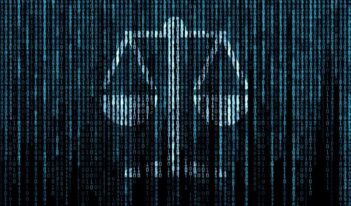
Congress holds hearings on the role of import bans in licensing of standard essential patents.
Recent bans on importing popular consumer electronic goods such as smartphones and gaming consoles affect not only individuals’ day-to-day lives, but also significant pockets of the U.S. economy. These import bans can arise in the context of patent litigation implicating so-called ‘standard essential patents’ (SEPs) before the Washington D.C. based International Trade Commission (ITC). Not only can they affect a significant portion of the nation’s economy – a recent study by Recon Analyticssuggests that the domestic wireless industry accounted for $195 billion in revenues last year, of which $146 billion stayed here in the U.S. – but such bans also raise knotty and somewhat arcane legal issues with antitrust implications. To examine these issues, the Senate and House Judiciary Committees recently held hearings with federal regulators and industry representatives.
The fundamental question before both committees was whether import bans should play any role in a context in which a SEP holder has committed to license its patents to an industry standard.
Industry standards play a key role in many technology markets, allowing as they do for devices from different manufacturers to interoperate seamlessly. Picture a mobile phone network in which Samsung phones could not connect to Apple’s iPhone (not to mention the potential nightmare that would create for teenagers across the land). SEPs are patents that are “baked into” an industry standard. Device manufacturers such as Samsung or Apple cannot conform to an industry standard absent a license to the relevant SEPs. Industry standards and SEPs are particularly important in the smartphone context since, unlike their predecessor “dumb phones,” smartphones can implicate thousands of patents in one small device.
Standard setting organizations (SSOs) often require as a membership condition that manufacturers agree to license a SEP on so-called RAND terms (RAND stands for ‘reasonable and non-discriminatory’). These RAND commitments are designed to mitigate the risk of a patent a “hold-up,” whereby the patent holder uses the fact that its patent is baked into a standard to negotiate a higher fee from would be licensees than would be the available absent the standard.
But – as with many legal issues – the devil is in the detail, and SEP holders and their would-be licensees often go to court over the value of a RAND royalty, or whether a particular patent that has been baked into a standard is valid at all. The question then arises: what remedies should be available to a patent holder that has agreed upfront to RAND terms? And is an import ban proportionate and equitable in the circumstances? Should it be open to the holder of a SEP to use the threat of an import ban to improve its leverage in a negotiation to agree RAND terms? And if the threat of an ITC import ban is removed, does this make it easier for the party using the SEP to game the system, and hold out for less than RAND terms to the disadvantage of the SEP holder?
Witnesses at the recent Senate hearing grappled with these and other thorny questions. Federal Trade Commissioner Edith Ramirez – who is a patent expert – and Acting Assistant Attorney General for Antitrust Joseph Wayland testified from their perspective as federal antitrust regulators. From an antitrust standpoint, they suggested, the threat of import bans and the related chilling effect such threats may have on any given standard setting process is troubling. According to Commissioner Ramirez, “ITC issuance of an [import ban] in matters involving RAND-encumbered SEPs, where infringement is based on implementation of standardized technology, has the potential to cause substantial harm to U.S. competition, consumers and innovation.” While both the Federal Trade Commission (FTC) and Department of Justice (DOJ) stopped short of calling for an end to ITC import bans on devices implicating SEPs, they did explain to the Senators that they thought such bans should only be permitted in exceptional circumstances.
The SEP import ban issue impinges on significant volumes of commerce, but the next steps for the Congress, regulators, and the ITC remain unclear. In its deliberations, the ITC may consult the FTC and DOJ on the antitrust implications of its actions. In fact, the FTC recently made its views regarding SEPs and import bans known in connection with two ongoing proceedings before the ITC concerning wireless devices and gaming consoles. At the Senate hearing, Senator Durbin struck a note of caution, and urged Congress to “tread carefully when considering changes to the current system of SEP enforcement.” In other words, the import ban issue looks set to play out for some time to come.




